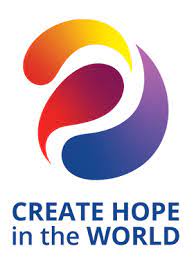The Four-Way Test
From the earliest days of the organization, Rotarians were concerned with promoting high ethical standards in their professional lives. One of the world's most widely printed and quoted statements of business ethics is The Four-Way Test, which was created in 1932 by Rotarian Herbert J. Taylor (who later served as RI president) when he was asked to take charge of a company that was facing bankruptcy.
Taylor believed that ethical conduct played an important role in relationships. He felt that if the company’s leadership and its employees were encouraged to think right, they would act right. What was needed was some sort of ethical code or yardstick which they could easily memorize and apply to what they thought, said or did in relationships with -- co-workers, vendors, and especially clients and customers.
This 24-word code of ethics for employees to follow in their business and professional lives became the guide for sales, production, advertising, and all relations with dealers and customers, and the survival of the company is credited to this simple philosophy.
Soon the company adopted it as its official policy for business conduct. He had the Test copyrighted. Five years later the company paid off the last of the $400,000 debt with interest and distributed over a million dollars in dividends to stockholders -- all in spite of the continuing Great Depression.
In 1942, Richard Vernor of Chicago, then a director of Rotary International, suggested that Rotary adopt the Test. The R.I. Board approved his proposal in January 1943 and made The Four-Way Test a component of the Vocational Service program, although today it is considered a vital element in all four Avenues of Service.
Herb Taylor transferred the copyright to Rotary International when he served as R.I. president in 1954-55, during the organization's golden anniversary.
The Four-Way Test has been translated into more than a hundred languages and published in thousands of ways. It asks the following four questions:
Of the things we think, say or do:
Is it the TRUTH?
Is it FAIR to all concerned?
Will it build GOODWILL and BETTER FRIENDSHIPS?
Will it be BENEFICIAL to all concerned?
